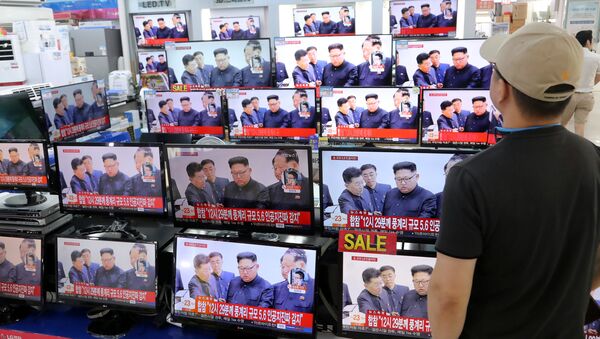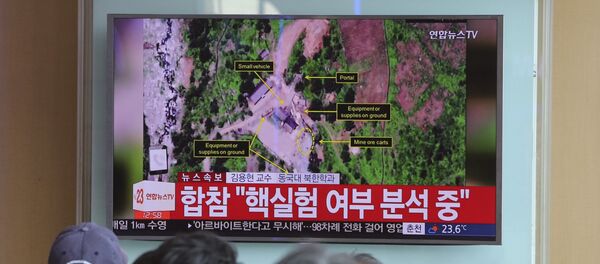North Korea detonated what it described as a hydrogen bomb Sunday at its Punggye-ri nuclear test site, claiming that the weapon was designed for a long-range missile.
The Comprehensive Nuclear-Test-Ban Treaty Organisation (CTBTO) originally said the bomb had a 70-kiloton estimated yield, but on Tuesday Japanese Defense Minister Itsunori Onodera told reporters that an upgraded revision by CTBTO estimated the yield to around 120 kilotons.
This would make Pyongyang’s explosive eight times more powerful than the bomb the US dropped in Hiroshima, Japan, at the close of World War II. That explosion had a yield equivalent to 15 kilotons of TNT.
"We can figure out that the nuclear test displayed a fairly high capability," Onodera said, according to Dawn.
While in Tokyo visiting Indian Defense Minister Arun Jaitley, Japanese Prime Minister Shinzo Abe said earlier in the day that North Korea’s behavior will only be curbed by a united front. "Whether we can contain North Korea's outrageous act or not depends on unity among members of the international community," Abe said.
Washington is calling for stricter sanctions against the North. An emergency meeting was held soon after the detonation between the UN Security Council and the US Ambassador to the United Nations Nikki Haley, with Haley informing the body that the US will soon present new sanctions to be voted on next week.
Japan is developing emergency plans for its citizens in South Korea to evacuate in case conflict breaks out on the Korean Peninsula, while Russian President Vladimir Putin believes that economic sanctions against the North would be “useless and ineffective,” though he admits the test was "provocative."




